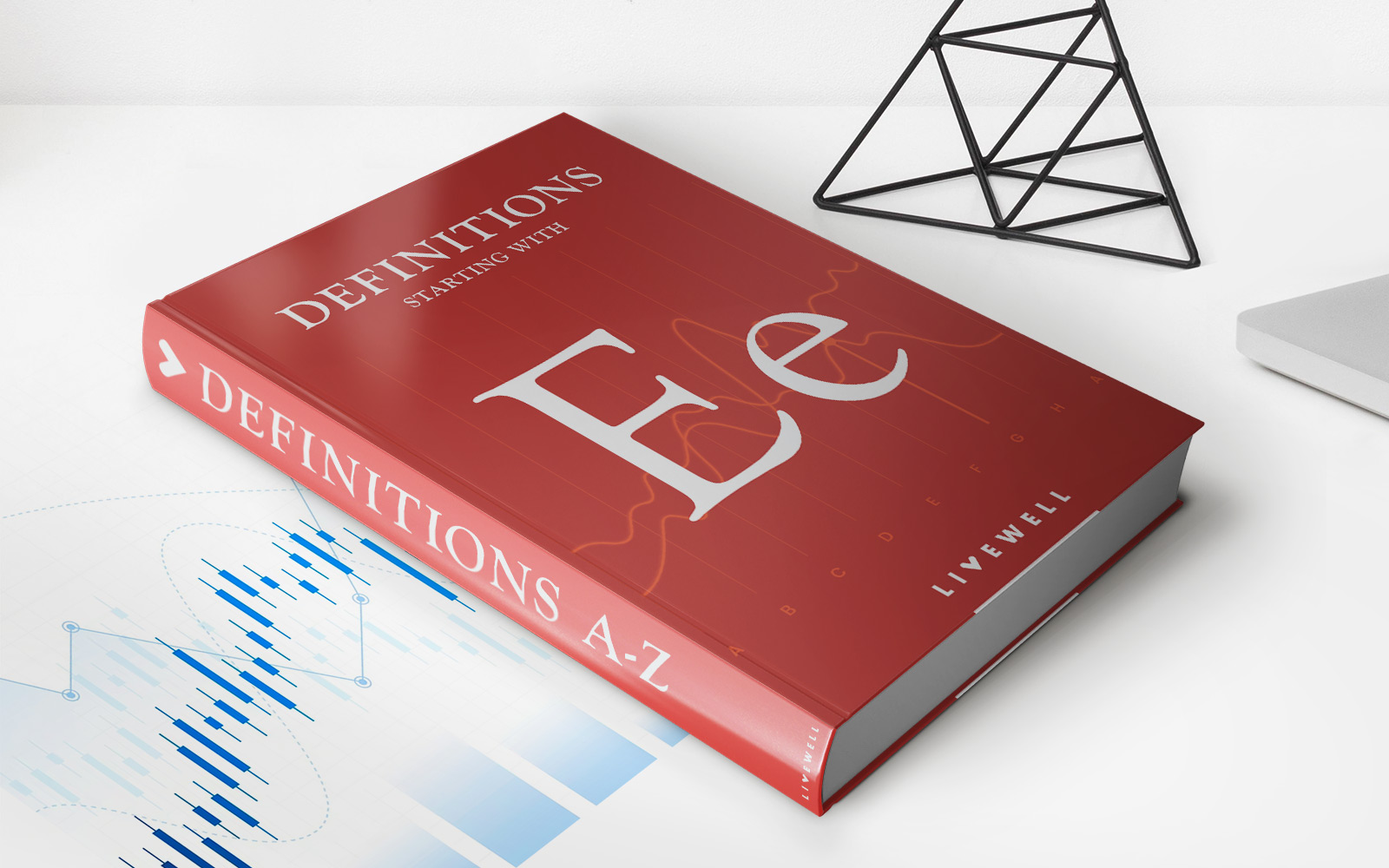

Finance
What Is Zero Deductible Health Insurance
Published: November 12, 2023
Looking for zero deductible health insurance? Find out what it means and how it can benefit your finances in this comprehensive guide.
(Many of the links in this article redirect to a specific reviewed product. Your purchase of these products through affiliate links helps to generate commission for LiveWell, at no extra cost. Learn more)
Table of Contents
- Introduction
- What is Zero Deductible Health Insurance?
- Understanding Deductibles in Health Insurance
- Pros and Cons of Zero Deductible Health Insurance
- Who Should Consider Zero Deductible Health Insurance?
- How to Choose the Right Zero Deductible Health Insurance Plan
- Tips for Maximizing Benefits with Zero Deductible Health Insurance
- Conclusion
Introduction
Welcome to the world of health insurance, where understanding the intricacies of different plans can be overwhelming. One such plan that has gained popularity in recent years is zero deductible health insurance. If you’re unfamiliar with this concept, don’t worry, we’ve got you covered.
Zero deductible health insurance is a type of plan that eliminates the need for policyholders to pay out-of-pocket expenses before their insurance coverage kicks in. In other words, it means that you won’t have to shell out any money before your insurance company starts covering the cost of your medical expenses.
This can be appealing for individuals who want to minimize their upfront expenses and have their health insurance coverage start immediately. However, it’s important to understand how zero deductible insurance works, its pros and cons, and whether it’s the right choice for you.
In this article, we will break down the concept of zero deductible health insurance and provide you with insights to help you make an informed decision about your health insurance coverage.
What is Zero Deductible Health Insurance?
Zero deductible health insurance is a type of health insurance plan that allows individuals to receive coverage for medical expenses without having to meet a deductible first. A deductible is an amount that policyholders are required to pay out of pocket before their insurance coverage begins. With zero deductible health insurance, this initial payment is eliminated, and policyholders can access their insurance benefits from day one.
Typically, health insurance plans require individuals to meet their deductible before the insurance company starts paying for covered medical services. This means that if you have a $1,000 deductible, for example, you would need to pay the first $1,000 of medical expenses before your insurance coverage applies.
With zero deductible health insurance, this financial burden is removed. Instead, policyholders can receive coverage for eligible medical expenses right away, without any upfront payment. This can be particularly beneficial for individuals who require regular medical care, have chronic health conditions, or anticipate upcoming medical expenses.
It’s important to note that while zero deductible health insurance eliminates the upfront cost, policyholders may still be responsible for co-payments, coinsurance, or other out-of-pocket costs associated with their medical services. These additional costs vary depending on the specific health insurance plan and can add up over time.
Zero deductible health insurance plans are typically offered by employers as part of their employee benefits package or through private insurers. They can be a valuable option for individuals who want immediate access to healthcare services without the financial burden of meeting a deductible.
Now that we understand what zero deductible health insurance is, let’s delve into the concept of deductibles in health insurance in general, so that we can better appreciate the benefits and considerations of zero deductible plans.
Understanding Deductibles in Health Insurance
Deductibles are a fundamental aspect of health insurance plans, and understanding how they work is crucial in making informed decisions about your healthcare coverage. A deductible is the fixed amount of money that policyholders must pay out of pocket before their insurance company starts covering their medical expenses.
For example, let’s say you have a health insurance plan with a $1,500 deductible. If you incur medical expenses totaling $3,000, you would be responsible for paying the first $1,500, and your insurance coverage would kick in to cover the remaining $1,500, subject to any co-payments or coinsurance.
Deductibles can vary in amount depending on the insurance plan and can be as low as a few hundred dollars to several thousand dollars. In general, plans with lower deductibles tend to have higher monthly premiums, while plans with higher deductibles often come with lower monthly premiums.
One key factor to consider when it comes to deductibles is the difference between an individual deductible and a family deductible. Individual deductibles apply to each policyholder separately, while family deductibles apply to the entire family covered under the plan. For family deductibles, once the collective medical expenses incurred by the family reach the set amount, the insurance coverage kicks in for everyone.
It’s important to note that not all healthcare services are subject to the deductible. Preventive services, such as routine check-ups, vaccinations, and screenings, are often exempt and may be covered without any out-of-pocket costs, even before you meet your deductible. This is because preventive care is seen as essential in helping individuals maintain good health and detect potential issues early on.
Understanding your deductible is crucial in managing your healthcare expenses. It’s essential to keep track of your deductible amount and plan your medical expenses accordingly. Additionally, knowing the difference between in-network and out-of-network providers is important, as the cost-sharing structure and deductible requirements may differ depending on whether you receive care from providers within your insurance plan’s network.
Now that we have a solid understanding of deductibles in health insurance, let’s explore the pros and cons of zero deductible health insurance to help you assess if it’s the right choice for you.
Pros and Cons of Zero Deductible Health Insurance
Zero deductible health insurance offers several advantages and disadvantages. Let’s take a closer look at the pros and cons to help you determine if this type of plan is the right fit for your needs.
Pros:
- Immediate access to coverage: The biggest advantage of zero deductible health insurance is that you receive coverage for medical expenses right from the start, without having to meet a deductible. This can be particularly beneficial if you require regular medical care or anticipate upcoming medical expenses.
- Financial relief: By eliminating the need to pay a significant upfront amount, zero deductible health insurance can provide financial relief, especially if you have a tight budget or prefer to manage your cash flow more effectively.
- Simplified cost-sharing: With zero deductible plans, you don’t have to calculate and track deductible amounts, making it easier for you to understand the cost-sharing structure of your healthcare expenses.
- Peace of mind: Knowing that your insurance coverage starts immediately can give you peace of mind, providing reassurance that you are protected from high medical costs.
Cons:
- Higher premiums: Zero deductible health insurance plans typically come with higher monthly premiums compared to plans with higher deductibles. This means that you may have to pay more every month in exchange for the immediate coverage benefit.
- Additional out-of-pocket costs: While zero deductible plans waive the requirement of meeting a deductible, you may still be responsible for other out-of-pocket costs such as co-payments, coinsurance, and non-covered services. These additional costs can accumulate over time and need to be factored into your decision-making process.
- Limited plan options: Zero deductible health insurance plans may not be widely available, depending on your location or the insurance providers in your area. This limitation in options could reduce your ability to find the plan that best suits your specific needs.
- Potentially higher overall costs: While zero deductible plans offer immediate coverage, the higher premiums and potential additional out-of-pocket costs may result in higher overall healthcare expenses compared to plans with higher deductibles where you pay less each month.
When considering zero deductible health insurance, it’s crucial to weigh these pros and cons against your specific healthcare needs, budget, and preferences. It may be helpful to compare different insurance plans, including those with deductibles, to determine which option aligns best with your financial situation and coverage requirements.
Now that we have explored the pros and cons of zero deductible health insurance, let’s discuss who should consider this type of plan.
Who Should Consider Zero Deductible Health Insurance?
Zero deductible health insurance can be beneficial for certain individuals, depending on their healthcare needs and financial circumstances. Here are a few scenarios where zero deductible health insurance may be worth considering:
1. Individuals with ongoing medical expenses:
If you have a chronic health condition or require regular medical care, having a zero deductible health insurance plan can provide immediate coverage for your medical expenses without the burden of meeting a deductible first. This can help you manage your healthcare costs more efficiently and ensure that you have access to necessary treatments and medications from the start.
2. Individuals with upcoming planned medical procedures:
If you anticipate undergoing a medical procedure or treatment that involves significant out-of-pocket costs, a zero deductible health insurance plan can alleviate the financial burden. With immediate coverage, you won’t have to worry about meeting a deductible before your insurance kicks in, allowing you to focus on your recovery without the stress of high upfront expenses.
3. Individuals with limited cash flow:
If you have a tight budget and prefer to have predictable monthly expenses, zero deductible health insurance can be a good option. By eliminating the need to pay a large deductible upfront, you can better manage your finances and have peace of mind knowing that your healthcare expenses are covered from the beginning.
4. Individuals who value simplicity:
Zero deductible health insurance plans offer a straightforward cost-sharing structure. Since there is no deductible to meet, you won’t have to calculate or keep track of deductible amounts. This simplicity can be appealing for individuals who prefer a more streamlined approach to their healthcare expenses.
While these scenarios highlight who might benefit from zero deductible health insurance, it’s important to assess your personal situation and consider factors such as your overall health, budget, and preferences. Analyze your healthcare needs, evaluate different insurance plans, and weigh the advantages and disadvantages of zero deductible health insurance to make an informed decision that aligns with your specific circumstances.
Next, let’s explore some tips for choosing the right zero deductible health insurance plan.
How to Choose the Right Zero Deductible Health Insurance Plan
Choosing the right zero deductible health insurance plan requires careful consideration and evaluation of various factors. Here are some essential tips to help you make an informed decision:
1. Assess your healthcare needs:
Start by understanding your specific healthcare needs and requirements. Consider factors such as your age, medical history, and any ongoing medical conditions. This will help you determine the level of coverage you need and identify if a zero deductible plan aligns with your healthcare needs.
2. Evaluate the network of providers:
Check the list of healthcare providers included in the plan’s network. Ensure that the plan has a wide network of doctors, hospitals, and specialists in your area. This will ensure that you have ample options for seeking medical care without the risk of incurring out-of-network costs.
3. Review the additional cost-sharing structure:
Even with a zero deductible, there may still be other out-of-pocket costs, such as co-payments and coinsurance. Review the plan’s cost-sharing structure to understand how much you may be responsible for paying for different services and medications. Consider the overall financial impact of these additional costs on your budget and choose a plan that offers reasonable and manageable cost-sharing.
4. Compare premium costs:
While zero deductible plans eliminate the upfront payment, they often come with higher monthly premiums compared to plans with higher deductibles. Evaluate your budget and assess the affordability of the premium costs associated with different zero deductible plans. Make sure that the monthly premiums are within your financial means.
5. Consider additional benefits:
Look beyond the zero deductible feature and consider any additional benefits offered by the plan. This may include coverage for preventive services, prescription drugs, maternity care, mental health services, and more. Assess the value of these additional benefits in relation to your specific healthcare needs.
6. Check customer reviews and ratings:
Research the reputation of the insurance provider and read customer reviews and ratings. This will give you insights into the overall customer satisfaction, as well as the provider’s responsiveness and reliability in processing claims and providing support.
By following these tips, you can compare different zero deductible health insurance plans effectively and choose the one that best suits your healthcare needs and financial situation.
Finally, let’s explore some tips for maximizing benefits with zero deductible health insurance.
Tips for Maximizing Benefits with Zero Deductible Health Insurance
Having a zero deductible health insurance plan offers various advantages in terms of immediate access to coverage and reduced upfront costs. To maximize the benefits of your zero deductible plan, consider the following tips:
1. Take advantage of preventive care:
With zero deductible plans, preventive services are often covered without any out-of-pocket costs. Make sure to schedule regular check-ups, vaccinations, and screenings recommended by your healthcare provider. By prioritizing preventive care, you can catch potential health issues early on and save on future medical expenses.
2. Understand your plan’s coverage and network:
Familiarize yourself with the details of your zero deductible health insurance plan, including the coverage for various medical services and the network of providers. Ensure that you seek care from in-network providers to maximize your benefits and avoid additional out-of-pocket costs associated with out-of-network services.
3. Review your prescription drug coverage:
If your zero deductible plan includes prescription drug coverage, review the formulary, which lists the medications covered by your plan. Take a proactive approach by discussing with your healthcare provider whether there are prescription alternatives that are equally effective but may have lower costs or more coverage under your plan.
4. Utilize healthcare savings accounts (HSAs) or flexible spending accounts (FSAs):
If your zero deductible health insurance plan is compatible with a health savings account (HSA) or a flexible spending account (FSA), consider utilizing these tax-advantaged accounts. These accounts allow you to set aside pre-tax dollars to pay for qualified medical expenses, further reducing your healthcare costs.
5. Maintain a healthy lifestyle:
Investing in your overall health and well-being can help minimize the need for medical care and expenses. Focus on maintaining a balanced diet, exercising regularly, getting enough sleep, managing stress, and avoiding unhealthy habits like smoking. By taking care of your health, you can minimize the impact of potential health issues and reduce your overall healthcare costs.
6. Stay informed about your plan’s updates and changes:
Health insurance plans can go through updates and changes over time. Stay informed about any modifications to your zero deductible plan, such as adjustments to coverage, network providers, or additional benefits. This will ensure that you fully understand your plan and can take advantage of all available benefits.
By implementing these tips, you can make the most of your zero deductible health insurance plan, maximize your benefits, and optimize your healthcare expenses.
With the information we have covered, you now have a better understanding of zero deductible health insurance and how it may fit into your healthcare needs and financial goals. Remember to assess your individual circumstances, compare different plans, and choose the option that aligns best with your specific needs.
By making an informed decision, you can secure the right health insurance coverage that provides effective and affordable healthcare when you need it most.
If you have any further questions or need assistance in choosing the right health insurance plan, don’t hesitate to consult with a qualified insurance professional.
Now that you’re equipped with the knowledge about zero deductible health insurance, go ahead and make an informed decision that prioritizes your health and financial well-being.
Conclusion
Zero deductible health insurance can provide immediate coverage for medical expenses without the need to meet a deductible first. This type of plan offers several advantages, including immediate access to healthcare services and financial relief from upfront costs. However, it’s essential to carefully consider the pros and cons, assess your healthcare needs, and compare different insurance plans to choose the right option for you.
Understanding deductibles in health insurance is crucial in navigating zero deductible plans. Deductibles are the amount you must pay out of pocket before your insurance coverage starts. Zero deductible plans eliminate this requirement, but additional out-of-pocket costs and higher premiums may still apply.
Individuals with ongoing medical expenses, upcoming planned procedures, limited cash flow, or a preference for simplicity may find zero deductible health insurance beneficial. By evaluating your healthcare needs, checking provider networks, comparing premiums, and considering additional benefits, you can select the right plan for your specific circumstances.
To maximize the benefits of your zero deductible health insurance, take advantage of preventive care, stay informed about your plan’s coverage and network, review prescription drug coverage, utilize healthcare savings accounts, maintain a healthy lifestyle, and stay updated on any changes to your plan.
In conclusion, zero deductible health insurance can be an attractive option for individuals seeking immediate coverage without the burden of meeting a deductible first. By understanding the nuances of deductibles, assessing your needs, and following the tips provided, you can make an informed decision and maximize the benefits of your health insurance coverage.
Remember, health insurance is an important tool in protecting your health and managing your healthcare expenses. So, take the time to research, compare, and choose the right health insurance plan that provides the necessary coverage and peace of mind for you and your loved ones.














